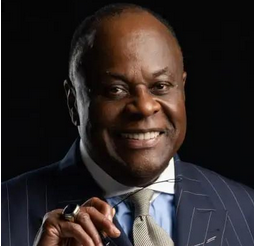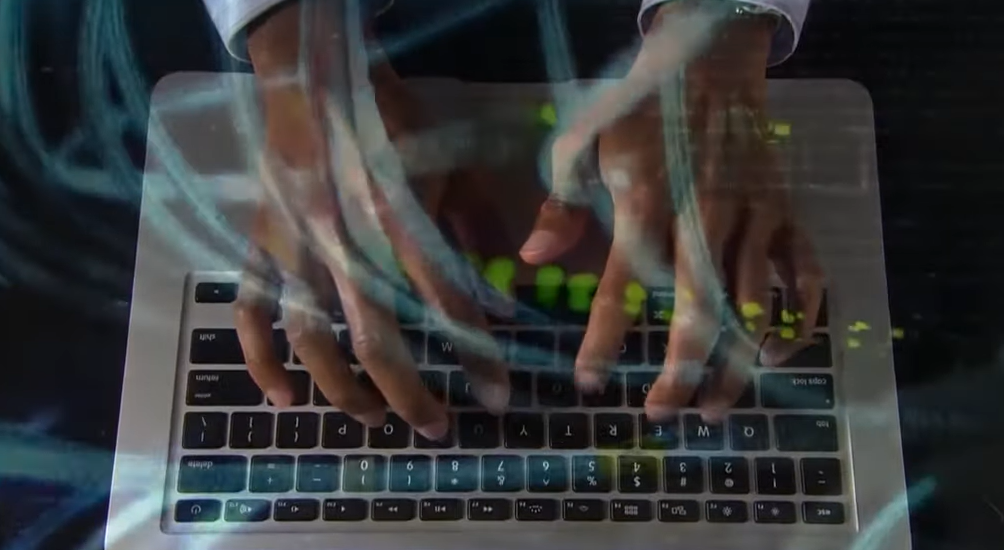By Rev. Dr. W. Franklyn Richardson
Photos:
States are about to receive billions of federal dollars to build or improve broadband infrastructure — the biggest such investment in the nation’s history. These funds, issued through the bipartisan Infrastructure Investment and Jobs Act (IIJA), will be a downpayment on our future with the potential to improve how we learn, work and access medical care.

While this is a moment to celebrate our biggest national investment since the New Deal, it is equally a time of diligence for us to not repeat the mistakes of this policy, or the G.I. Bill of Rights a decade later. Black Americans, along with other marginalized communities, must see these dollars first and at the scale that matches our needs. And few needs are greater than closing the digital divide, especially when it relates to education.
So, as the Department of Commerce releases these funds, states must make significant broadband investments in and around historically Black colleges and universities (HBCUs). These dollars will be a lifeline to empower the next generation of Black leaders to succeed and reach their full potential. Making such an investment will ensure we are living up to the true spirit of the IIJA, which is to correct the missteps of the past by charting out a fairer future.
Also Read:
Biden announces billions of dollars to connect underserved communities to high-speed internet
As an alumnus of Virginia Union University, a 158-year-old HBCU where I now serve as chairman of the board, I cannot understate the value of these institutions. The overwhelming majority of Black doctors are educated at these institutions, as are many other Black professionals. Our alumni include national leaders, from Justice Thurgood Marshall to Vice President Kamala Harris; artists and entertainers from Leontyne Price to Spike Lee; civil rights leaders, from Dr. King to Rev. Jesse Jackson; star athletes, from Walter Payton to Michael Strahan; and America’s first Black billionaire, Reginald Lewis.
HBCU alumni have been empowered to lead the nation in their respective fields but they have done it all with one hand tied behind their backs. Inequities in the higher education system are not new. Look at how the G.I. Bill opened university doors for many white World War II veterans that had been closed when they left to fight. The same could not be said for their Black comrades, who daringly took to the skies as Tuskegee Airmen or charged tanks through the snow to turn around the Battle of the Bulge. Yet all of their bravery and heroics could not overcome the loopholes or regulations meant to serve as barriers for them to get an affordable education. Sadly, this was only a continuation of the New Deal era when states did not use federal windfalls to build up Black communities.
Such disparities have only widened in the digital age. High-speed internet has allowed college students to learn more, faster and from practically anywhere. A striking 82% of HBCUs are in broadband deserts, according to McKinsey, areas that are also home to some of the nation’s largest Black communities. This means students grow up in areas with slow internet, only to see that continue as they go for an advanced degree. Many of them scraped by in silence, making due at libraries or coffee shops where they could access free Wi-Fi The pandemic took away even this lifeline when quarantine limited their ability to work from these places.

Investing in high-speed internet for HBCUs is an investment in the future of the American economy. This will ensure our students have the ability to keep up with their counterparts at other institutions. Imagine a world where young Black Americans can focus on fulfilling their dreams instead of stressing about their internet connection. As Robert Smith, a major supporter of HBCUs, recently noted, this is “a once-in-a-lifetime opportunity to close this divide and finally achieve economic equality in America.”
Now, states have a duty to ensure HBCUs and the surrounding communities are part of their broadband plans. It is not simply about righting past wrongs, though that is important but guaranteeing we have the next generation of doctors, engineers, lawyers, and other leaders to meet the demands of tomorrow. This is a moment when states, HBCUs, and the entire nation can work together to leave a legacy far greater than at any other time in our history. It all starts with a simple internet connection.

Rev. Dr. W. Franklyn Richardson is the chairman of the Conference of National Black Churches and senior pastor of Grace Baptist Church in Mt. Vernon. He also serves as chair of the board of trustees for Virginia Union University.







